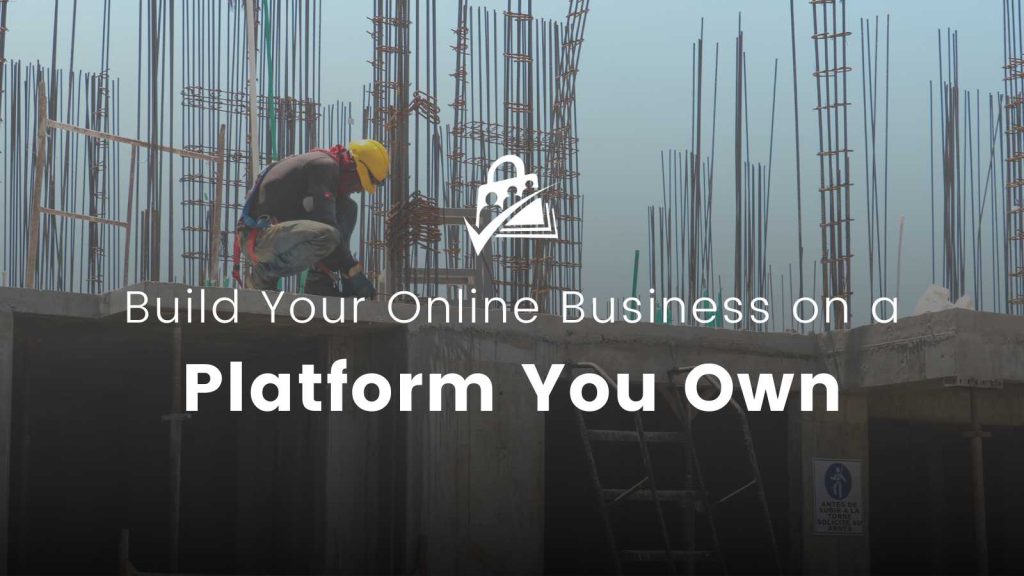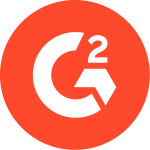New online businesses are launching every moment of every day: membership sites, online stores, and everything else you can imagine. Loads of software tools, Sass apps, platforms, and site builders are available to help these businesses go to market faster, at a lower cost, and with less technical demands.
I believe that it is in your best interest to own the platform that the core of your business is built on. This article explores why owning your platform is so important and how you can leverage existing tools to help grow your digital empire.

Don’t Build Your House on Another Man’s Land
It may seem obvious, but I’ll bet that if you were in a position to buy or build a house, you’d want to make sure that you own the land or property that the house would be built on, too.
Having your beloved home on another person’s property leaves you at the mercy of the landowner. What if the landowner decides to start a piggery right next to your cozy reading nook? What if the property owner underestimated the value of the plot and decides to start charging you a boarding fee? What if the owner of the land has personal finance issues and has to sell the land? What if they fail to pay their mortgage and the bank decides to repossess the land and everything else on it?
Building your ‘house’ on another man’s land will undoubtedly open you up to a world of “What if’s“. Maybe I’m just pessimistic. Things could go really great! But, maybe they won’t.
If building your dream home on someone else’s property is such an absurd idea, then why do so many online businesses build on platforms they don’t own or have any control over?
Owning Your Platform Matters
You may be wondering what all the fuss is about. If the platform you built your business on—even if not fully owned by you—is functional, manageable, and turning a profit then it’s all good, right? Well, yes. It is fantastic that you leveraged a platform to start a business, grow an audience and start making money online.
What if things start going really well? You decide to quit your day job and focus on your little digital nest egg full time. It becomes your main source of income. It is where connect with your customers or followers. You even have a shiny new online store integrated, right on the platform.
Then one day, the platform you built your business on changes. It is no longer as easy as it once was to connect with your customers. You need to pay extra fees that weren’t there before. Worse yet, the company that created the platform liquidates and with it, your business. The “What if’s” continue 😵
At the Mercy of the Infamous Algorithm
In 2018, Facebook decided to change its news feed algorithms. It was decided that posts from family and friends would be highly prioritized and advertising from businesses great and small would take a back seat. Now, for someone like me, who really only uses Facebook to stay in touch with family and friends who live or work abroad—this is great news. But for someone whose business is now at the mercy of the Facebook algorithm, this is not the best news around.
It doesn’t mean that it is impossible to reach your audience through your Facebook Business Page. It just became a lot harder. Unless of course, you choose to “boost” your posts by paying Facebook to display them.
Price Hike for Creators
Towards the end of 2017, Patreon introduced some pricing increases that created an uproar within the Patreon community and even lead to some patrons leaving the platform altogether. These changes were later retracted due to the commotion it caused. In a lot of the ways the damage had already been done.
Don’t get me wrong, I don’t mean to villainize any specific platform. These companies are working very hard to provide a highly specialized service to their target audience. But, these platforms are also companies. Companies need to make a profit. Companies make mistakes. Companies change their focus. And Companies sometimes pivot to suit the needs of their customers, user base, and stakeholders. Their necessary changes may be detrimental to you.
Owning Your Own Platform is not a Bulletproof Solution
This approach doesn’t relieve you from all uncertainty of change and unexpected life events. What it does is help you have infinitely more control over how your business is run. I am not proposing that we should never use any platform or social media network. Not at all! These are extremely effective tools that help us grow our brands, build businesses, and connect with people. But if your core business is completely reliant on any giving platform—you are essentially at the mercy of those who people who “own the land” of the house that it was built upon.
Make It Your Own
I hope that by now you can appreciate that owning your online business is in your best interests. Apart from you having full control, you also have the luxury to retain the largest percentage of the revenue that you generate. A 5% per member fee may not seem like much when you are just starting out. Once the ball gets rolling and you start growing in popularity (and sales), 5% becomes quite a hefty fee…especially when it feels like you are doing all the work!
Here are some tips for building an online business that is completely and utterly your own:
Develop a website.
If you are unable to make a website yourself, find a developer who can put together a website for you. Be sure to ask her to build you a website on a platform that is not owned by any specific entity. We recommend WordPress because it is community driven, Open Source (free) and always will be. With WordPress – you own your website 100%
Start blogging.
To have a blog is all the rage, and for good reason. It allows you to create and publish meaningful content that will exist on your site forever. A blog helps you build your audience and can play a huge role in your organic search engine ranking. Once published, it will be put to ‘work’ for you as long as it has a place on your site.
Make your website your hub.
Your website should be your home base. Everything you produce can be found on your site. No matter what changes on the outside, your home base stands secure.
Use the “Inside Out” approach.
For any type of content you produce, be sure to publish it first and foremost on your website. Use social media networks and other tools to distribute content to your audience, but always link back to your site. Doing so will create a spider’s web-like structure, with your website being in the middle. All traffic will naturally be encouraged to come directly to you and, over time, this will establish your brand and online presence.
Use other platforms as tools.
As an example, let’s say you want to build up a name for yourself as a travel blogger and you thoroughly believe that you need to be writing on Medium. Why not blog about your travels on your website and post the exact same article to your Medium account (with a link back to your website 😉).
Build Your Membership Site with Paid Memberships Pro
If you are looking to build a membership site, you might be shopping around for the best option that will work for you—as you very well should!
With Paid Memberships Pro (PMPro), you can rest assured that you will always own your membership site platform. At the time PMPro launched, we were the only truly free and Open Source Membership plugin. This fact will never change.
We are a 100% GPL, Open Source Plugin. Our plugin’s code is not obfuscated, runs on as many sites as you want and can be customized to fit your project’s needs. This basically means that with Paid Memberships Pro and the right know-how, you can do pretty much anything with it and that you own whatever you do with it, forever. It is true that we offer two “paid” membership options, but this doesn’t change the fact that you own your membership platform 100%.
Summary
While I do believe in the benefits of owning your online business, I do know that it isn’t easy. You may find that the only possible entry point is to build your business on a platform like YouTube, Shopify or Facebook. If using a platform makes sense to you, do it. The only way to truly fail is to never begin your online journey at all. When and if the time comes to change platforms, you can surely move to something that you have more control over.

